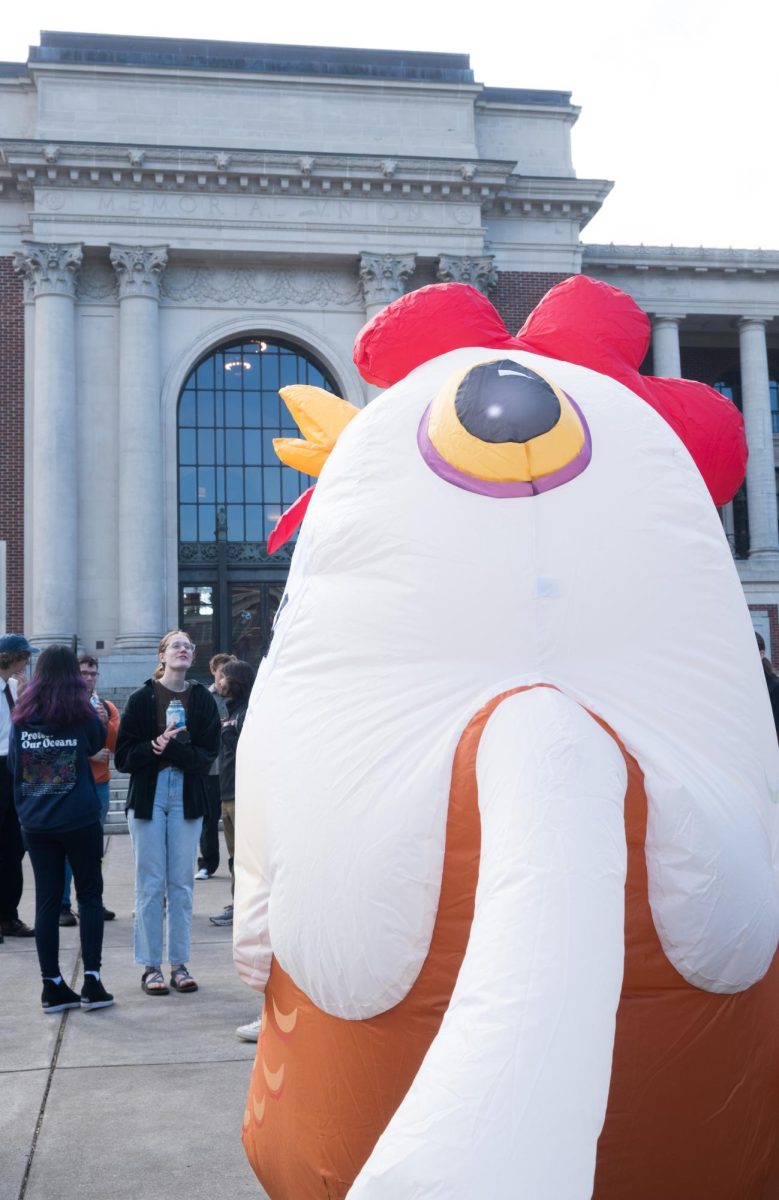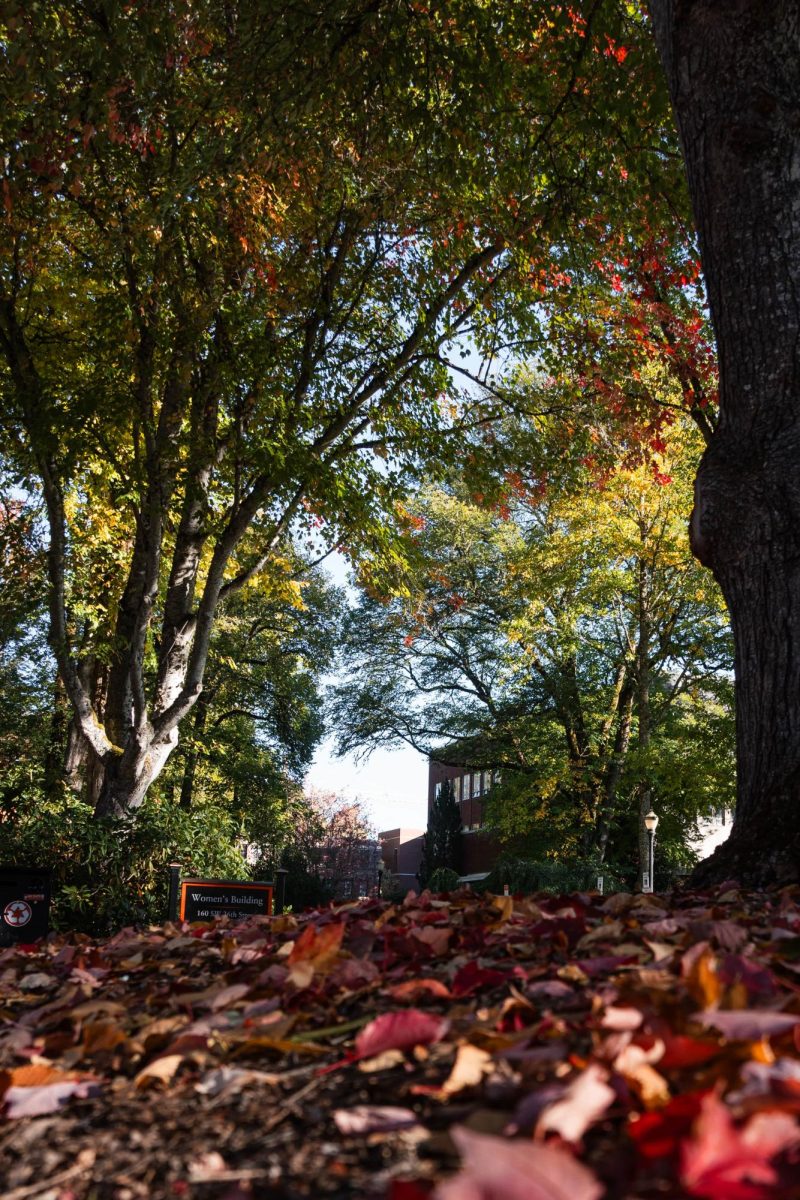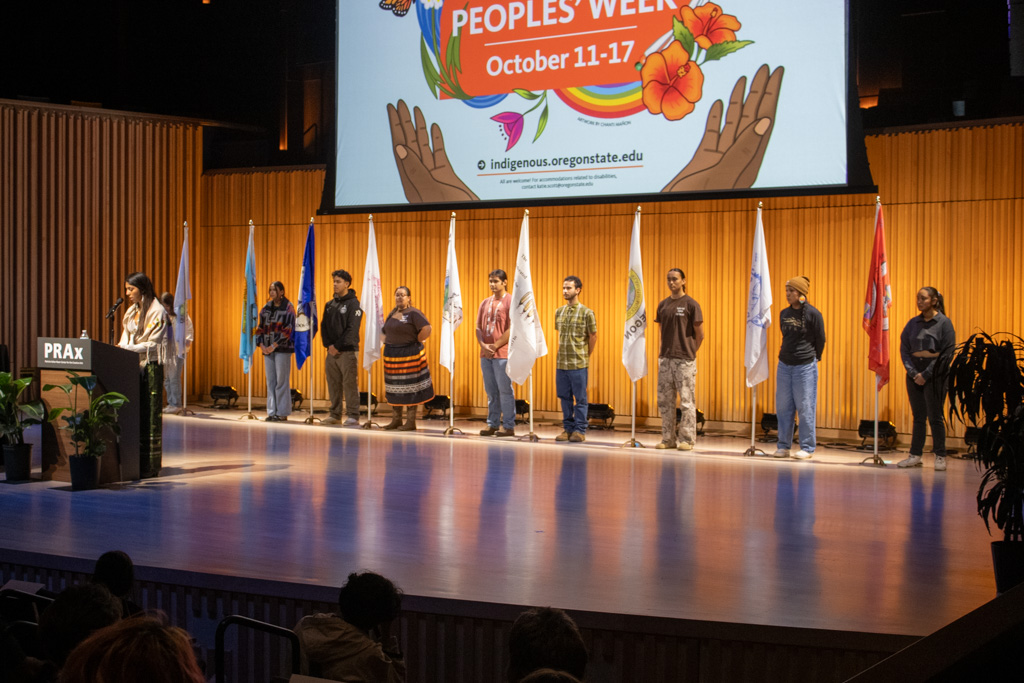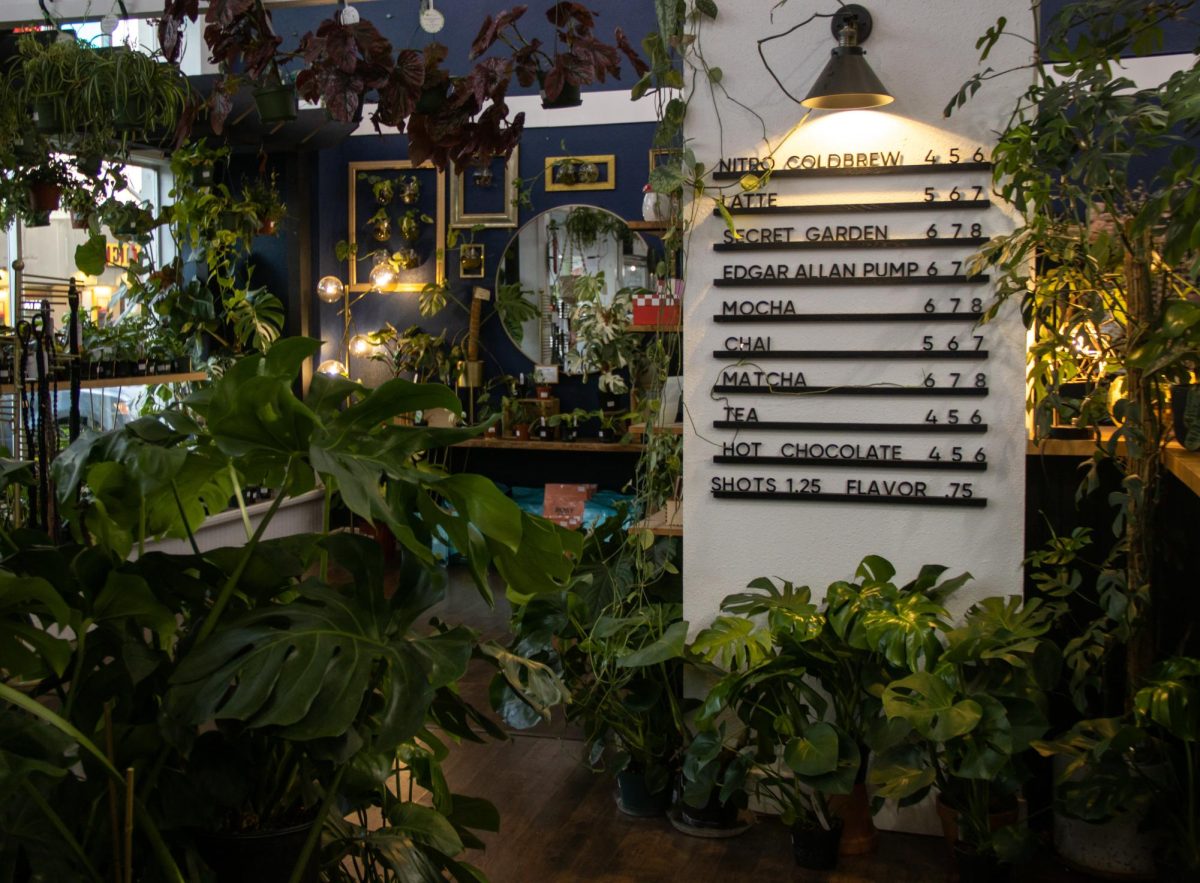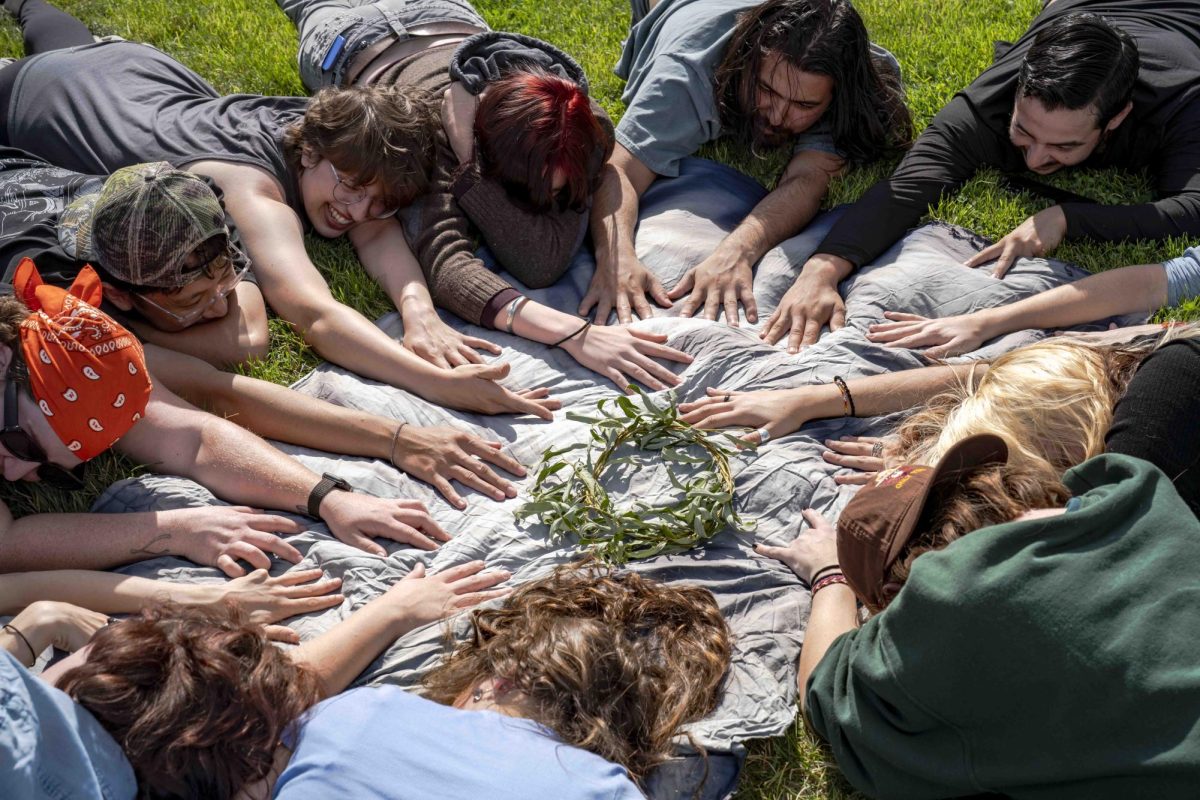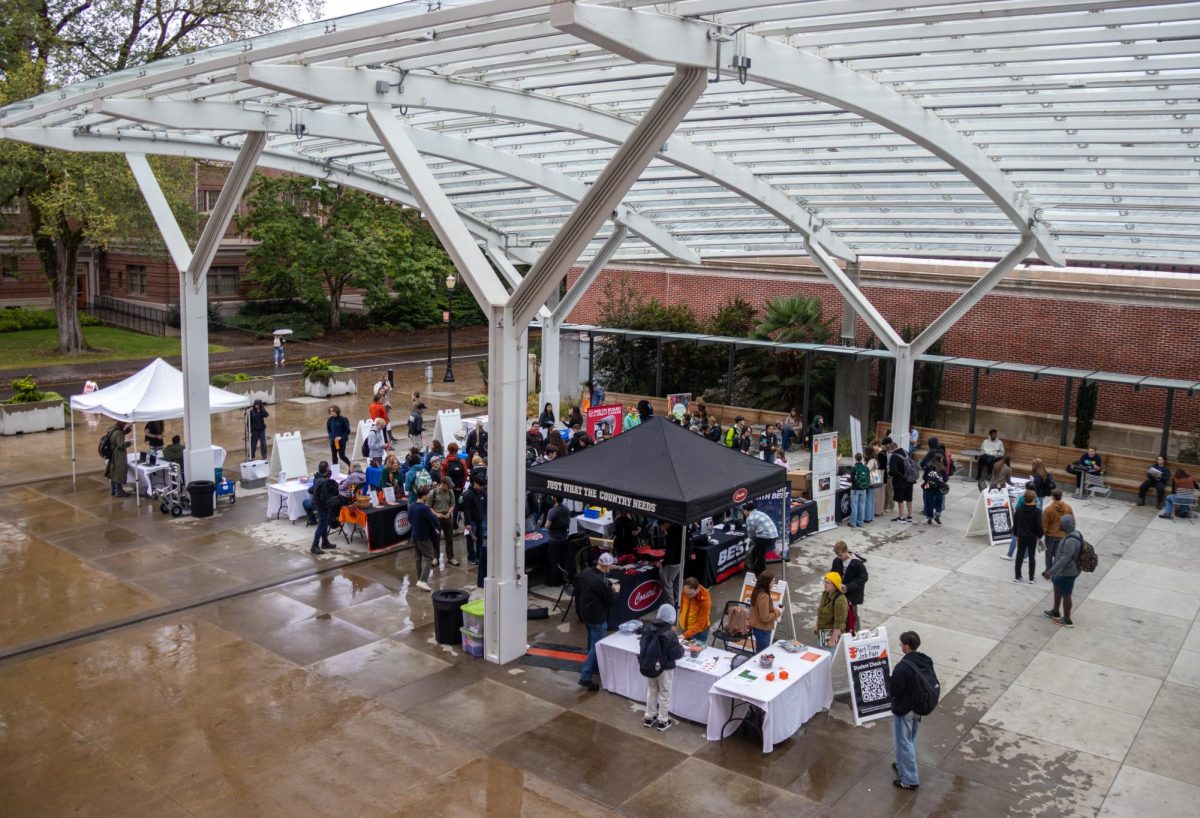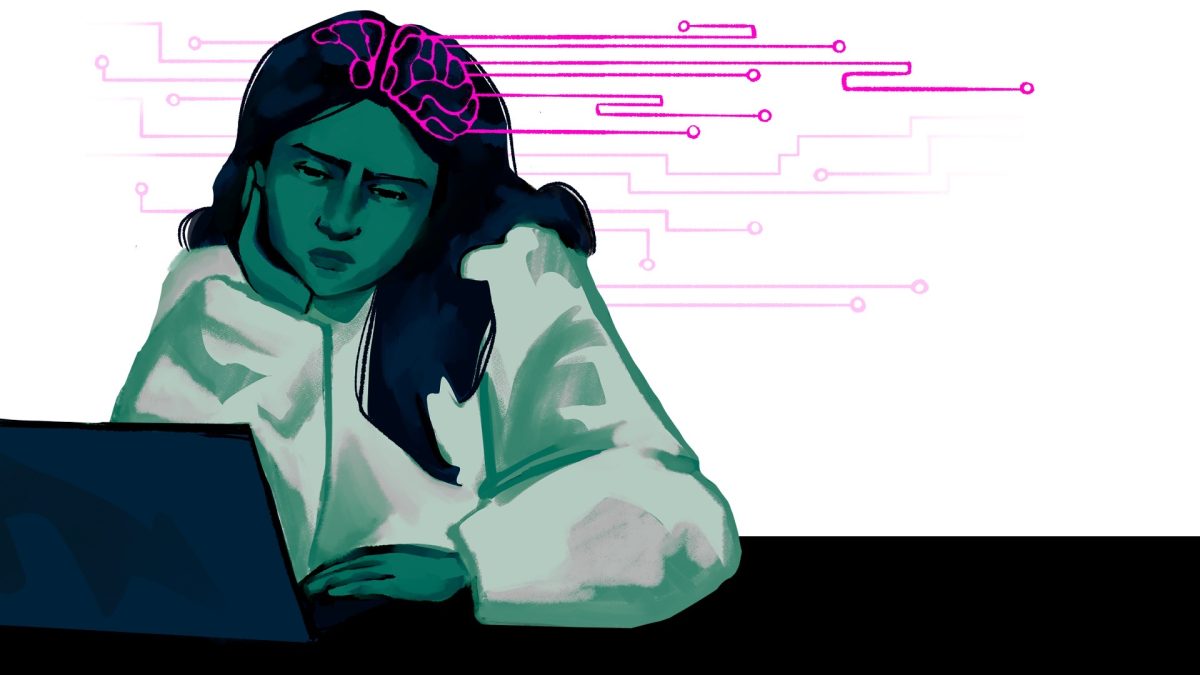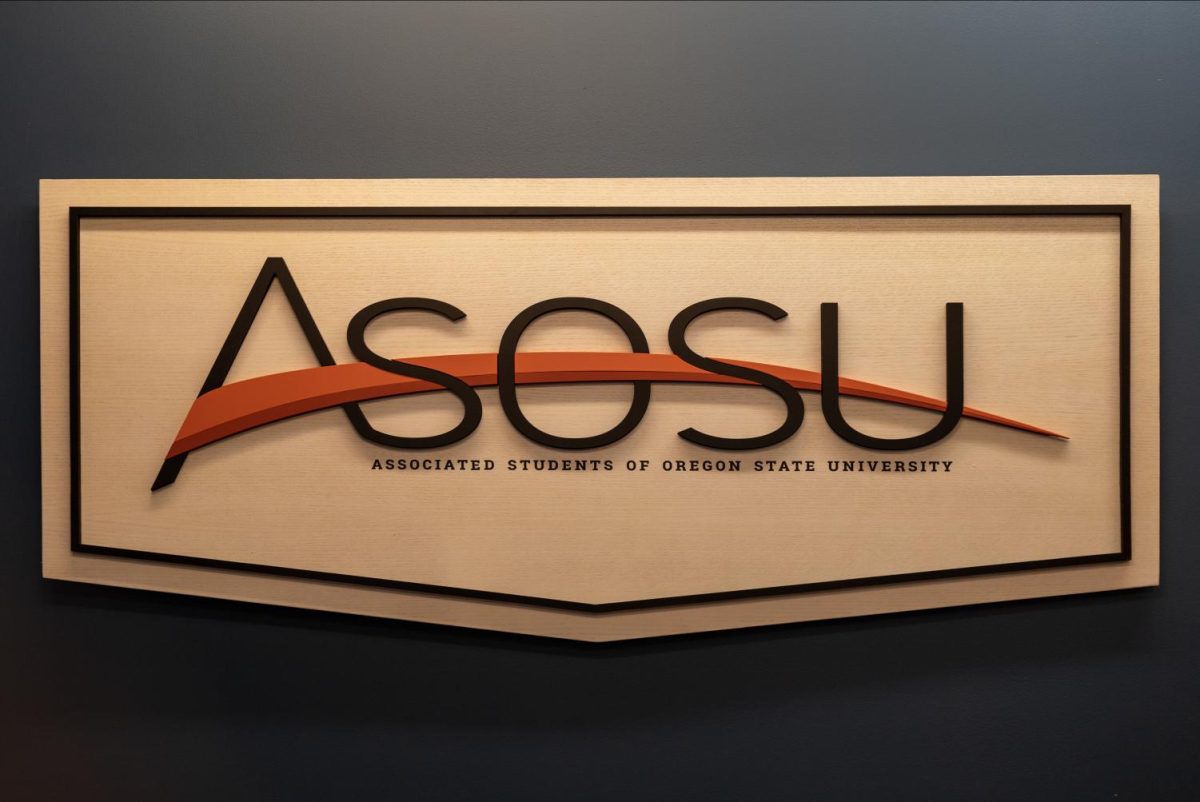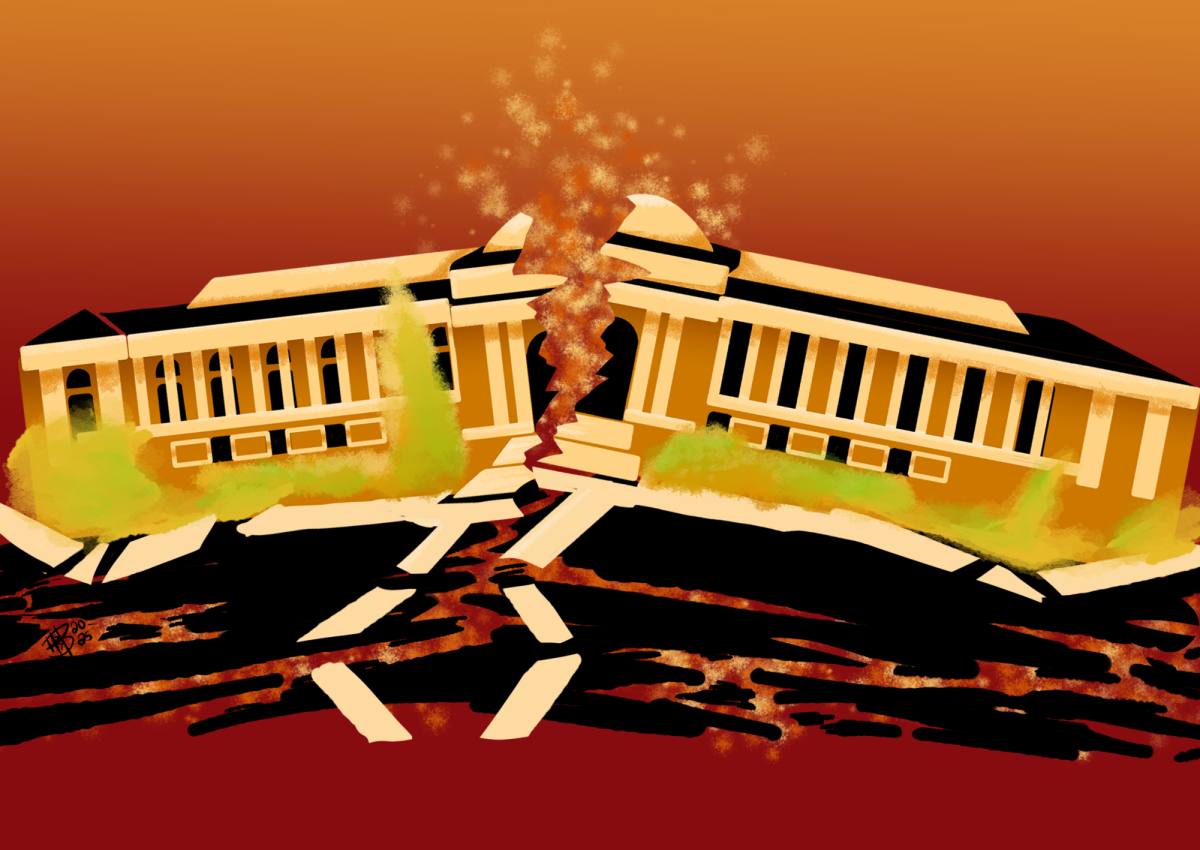Editors note: This opinion-piece does not represent the opinion of Beaver’s Digest but rather it reflects the personal opinions and observations of the writer covering the “No Kings” protest in Corvallis, Oregon on October 18, 2025.
On October 18 the slogan “No Kings” unified hundreds of people downtown in Corvallis, Oregon.
The phrase, a critique of the current presidential administration, drew a diverse group of people to the Benton County Circuit Courthouse.
Though marchers came from different corners of Corvallis, they gathered under a shared purpose to reject concentrated power in government and society.
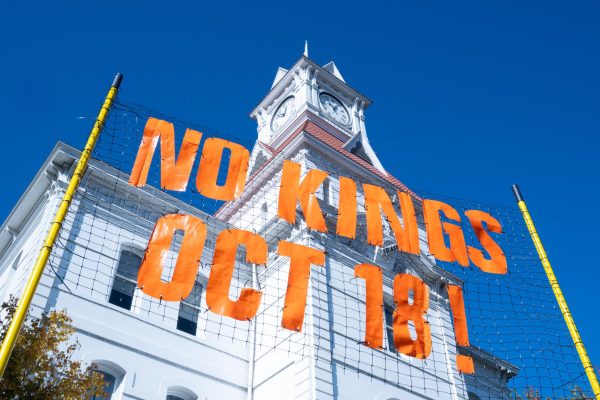
The turnout for the protest was huge; this is the largest protest the city of Corvallis has seen since Donald Trump’s second inauguration.
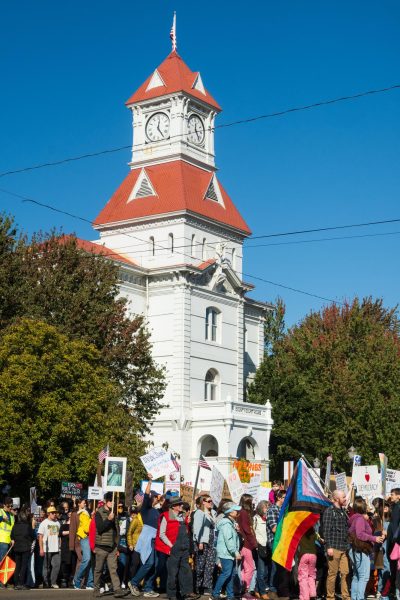
The diversity of the crowd was striking. Parents, students, teachers, artists, children, and even some energetic grandparents filled the square. Protest signs, costumes, and music created an almost festival-like atmosphere.
As serious as a topic like this can be, the atmosphere was not gloomy or depressing. The people who put the “No Kings” protest together made sure the experience was engaging and fun.
Though it could seem that everyone was at the protest for the same reasons, everyone had their own reasons and motives. In speaking with attendees, it became clear that “No Kings” means different things to different people. After asking the question , “What does No Kings mean to you?” I got a lot of different answers.
One perspective on what’s happening environmentally, in our country and worldwide, was from a person in a chicken costume who preferred to remain anonymous. She was comfortable sharing that she is a senior at Oregon State University and an environmental science major.
She mentioned a lot of cuts to the funding of organizations that help our environment domestically as well as internationally. The National Oceanic and Atmospheric Administration (NOAA) has experienced budget cuts under the Trump Administration, as well as the United States of America national parks.
Mark Weiss, who came to the protest with a non-profit that works to establish universal healthcare in Oregon. His message was that of No Kings in healthcare, specifically, which I found very interesting.
“People think of Trump when they hear ‘No Kings,’” he said. “But to me, it’s about the healthcare system. No company should have that much control over whether someone lives or dies.”
Matt Polk, an Oregon State University student present at the protest partaking in independent photography. Polk said he covers events like this often and uses his photography to increase the exposure of the events and protests he attends.
Polk mentioned covering recent events at Portland’s Immigration and Customs Enforcement facility (ICE). This was not Polk’s first time attending a “No Kings” protest in Corvallis.
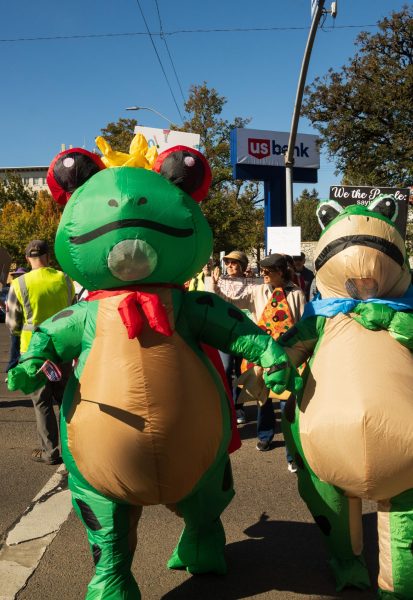
For those unfamiliar, the Portland frogs, a local protest meme turned street symbol, have recently appeared throughout the city, often alongside anti-authoritarian slogans.
Frogs, once used ironically online, have been reclaimed by protestors in Portland, Oregon as symbols of decentralized resistance and civil disobedience, seen most effectively in blowup costumes outside of the ICE detention center.
Their presence connects the “No Kings” ethos across Oregon, and the nation, tying the protest cultures of Corvallis and Portland together in creative, grassroots defiance.
It wasn’t just the conversation that was captivating with these protestors; to touch on it again, I was amazed at how many different age groups showed up to support the “No Kings” protest.
I spoke with my fellow students about what “No Kings” means to them, I spoke with elderly people, I spoke to parents, and even people younger than myself. What I really felt in these conversations was something patriotic.
It was interesting to watch people talk about our country being founded on the idea that “No Kings” should exist in the United States of America; and how proud they were of their country while still acknowledging and working against the things they want to see change.
Different ages and backgrounds coming together with a common principle will always make an impact. If an idea can transcend age, background, religion, and political views, that’s an important idea to talk and inform fellow Americans about.
As for the woman in a chicken costume who said “I’m not too chicken to protest…” I think she spoke for millions across the nation.

